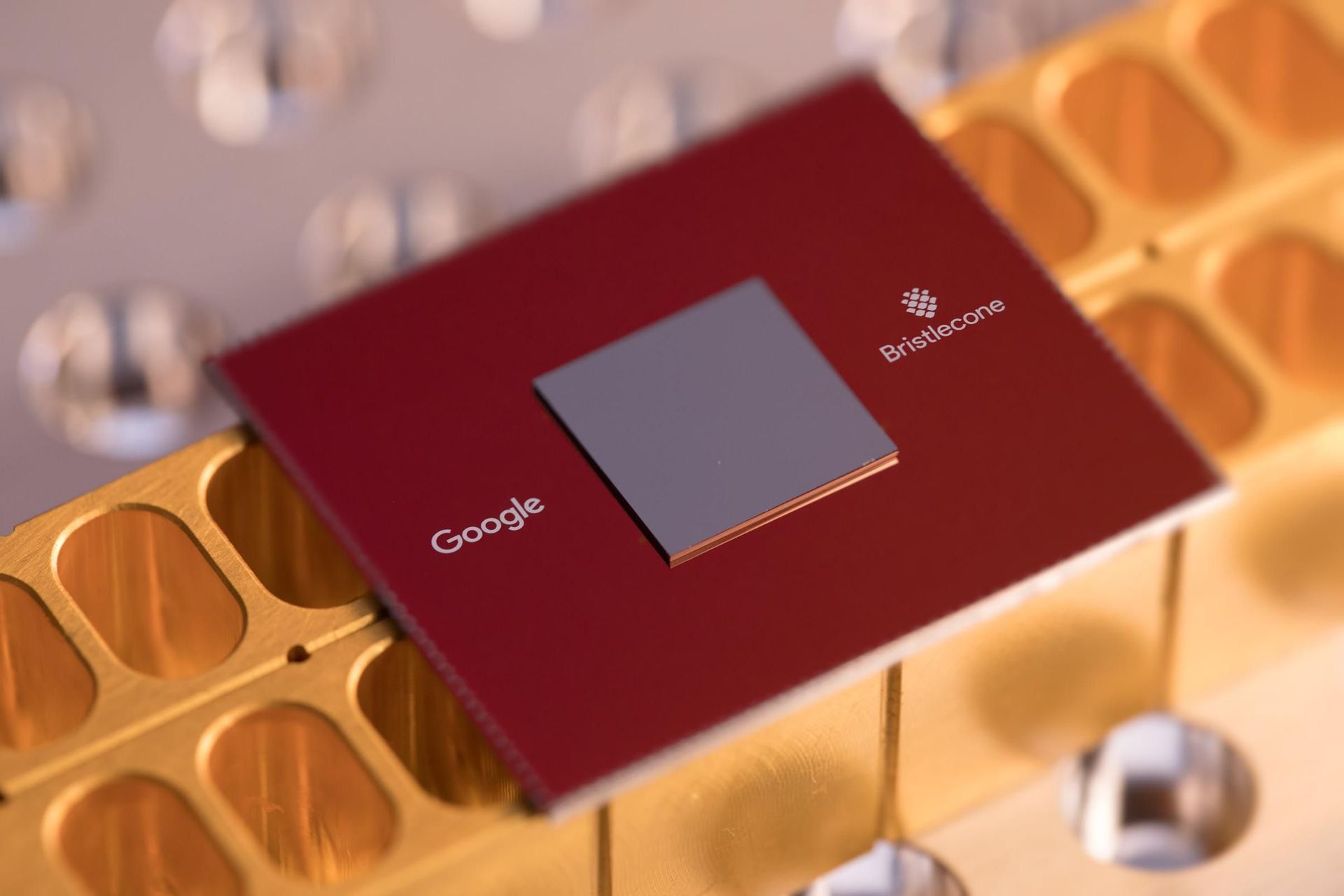Affiliate links on Android Authority may earn us a commission. Learn more.
Google's quantum supremacy: What it means
Published onSeptember 28, 2019

Last week, Google researchers claimed to have reached “quantum supremacy,” according to an article in the Financial Times. Google’s paper was briefly posted on a NASA website before being removed. In it, researchers claim to have outperformed today’s most powerful classical supercomputer — called Summit — with their own quantum computer.
This is what is known as quantum supremacy — in other words, when a quantum computer is proven to be faster at a given task than a classical computer. According to the paper, Google’s 53-qubit Sycamore system is able to complete this specific calculation in three minutes and 20 seconds. The Summit supercomputer would take around 10,000 years to complete the same function.
Reaching quantum supremacy had initially been predicted for the end of 2017. However, Google’s 72-qubit Bristlecone computer (pictured above) proved too hard to control with sufficient accuracy. Instead, the breakthrough comes from the smaller 53-qubit Sycamore system.
What quantum computers are good for
Unlike traditional computers which operate on bits of either 1 or 0, quantum computers use “qubits” to store values. A qubit, or quantum bit, is a two-state quantum-mechanical system. It has the mysterious property of being able to hold a superposition of both 1 and 0 states at once. However, this state collapses upon measurement.
Quantum computers are built with similar hardware gates to classical computers, with NOT and AND gate equivalents used built to mathematical functions. However, quantum outputs are intrinsically probabilistic, meaning they must be checked for accuracy and error corrected. You also can’t peek at a quantum computation part-way through without ruining the output, due to superposition.
Superposition and probability are the keys that make quantum computers useful for certain mathematical tasks. Scaling up the number of qubits makes it possible to compute millions of possibilities almost instantly. Uses include factoring huge numbers, calculating Fourier Transforms, and solving linear equations. Quantum computers, by nature, are very specialized. They actually aren’t any good for many of the basic computations our handheld computers perform every day.
What does quantum supremacy mean for security?

As odd as quantum computers sound, they have some very interesting applications in certain areas of computing — particularly those that involve repeated, complex mathematical operations such as meteorology, modeling chemistry and physics, and cryptography.
That last one often spooks people. Quantum computers can run through so many mathematical permutations at once and, in theory, take a fraction of the time of current computers need to break common encryption standards. Just days or hours rather than multiple lifetimes. New cryptographic protocols may one day be needed for very sensitive information to prevent cracking by quantum computers.
Encryption standards will have to improve in the wake of commercial quantum computers.
Likewise, similar algorithms are used in the current cryptocurrency market to secure wallets and verify transaction legitimacy. There’s no sign that even Google’s computer is quite at the capability of cracking these encryption types. However, the threat of exponential growth in quantum computing power makes this a distinct possibility in the next few years.
Fortunately, quantum computers are still a long way from being commercially viable. They’re still in the development stage and are far more likely to be used for research than breaking public passwords. Either way, encryption standards will have to improve to deter and prevent cracking viability in the near future.
Questions over Google’s quantum supremacy claims
While Google claims quantum supremacy as a major breakthrough, some of its rivals are less convinced about the merits of the achievement. The term “quantum supremacy” suggests quantum computers are now more powerful and useful than classical computers, but this is certainly a contentious claim.
Dario Gil, head of research at IBM (a major rival in the quantum computing space), called Google’s claims “just plain wrong.” Gil notes that the research is just “a laboratory experiment designed to essentially — and almost certainly exclusively — implement one very specific quantum sampling procedure with no practical applications.” In other words, Google’s research focuses on a very narrow type of computing that reveals little about the broader capabilities of the computer.
Quantum supremacy — when a quantum computer outperforms a classical computer for a given task.
However, Chad Rigetti, a former IBM executive, called the announcement a “big moment for humans and for science.” Daniel Lidar, an engineering professor at the University of Southern California, noted the scale of Google’s breakthrough. The company has reduced qubit interference — known as “crosstalk” — greatly reducing the computer’s error rate compared to its rival.
The implication is that Google will now be able to scale up the size of its quantum computers thanks to lower error results. More qubits with low error will exponentially increase the processing power of quantum computers, making them much more viable for complex problem solving. Though, there’s still much more work to be done on programmability, too.
Ultimately, quantum computers are only useful for a limited set of tasks. They’re expensive to build, run, and program for. This complexity means that they’re only ever likely to be used sparingly for very specific tasks. Although, this doesn’t diminish Google’s quantum supremacy milestone and the fact that quantum computing looks more and more viable every year.